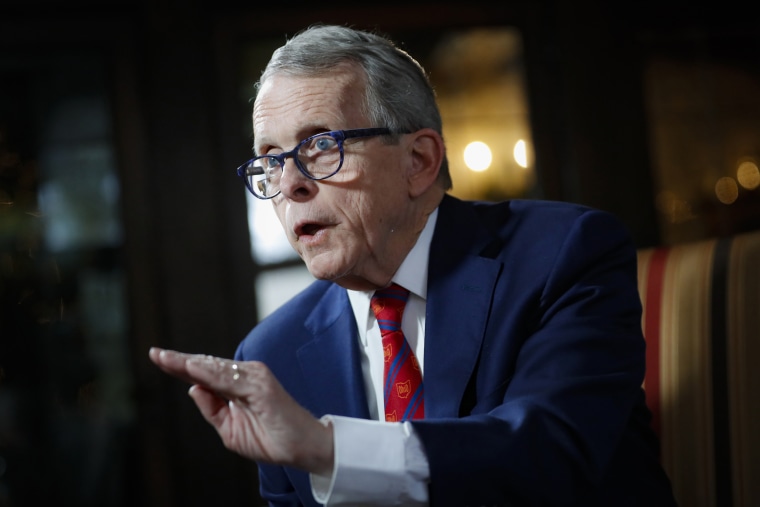About a year ago at this time, Ohio Gov. Mike DeWine (R) was among the nation's most popular governors, having been credited with a sensible pandemic response, and it seemed likely that the Republican governor was on track for a relatively easy re-election campaign in 2022 in his increasingly "red" state.
But as it turns out, DeWine, an old-guard conservative and longtime fixture of Ohio politics, will have to overcome a high-profile rival -- from his own party.
Former Rep. Jim Renacci said Wednesday that he will challenge Ohio Gov. Mike DeWine in next year's Republican primary.... "Ohio cannot afford for Mike DeWine to be the governor anymore," Renacci told the Cincinnati Enquirer in an interview.
DeWine apparently took two steps that his far-right base could not accept. First, he took the COVID-19 crisis seriously and imposed pandemic restrictions intended to save Ohioans lives.
Second, the governor recognized President Biden as the rightful winner of the 2020 election last November. Donald Trump published a tweet soon after that read, "Who will be running for Governor of the Great State of Ohio? Will be hotly contested!"
It was hardly subtle: DeWine, who generally been a Trump ally, had gone too far by honoring his country's election results. Renacci intends to capitalize, working with Team Trump and tying himself to the former president's political brand.
Time will tell whether the incumbent governor's prospects are seriously in jeopardy, but the news out of the Buckeye State was striking in its familiarity.
Texas: Incumbent Gov. Greg Abbott (R) is facing at least one primary challenger, with former state Sen. Don Huffines, a wealthy businessman, launching his gubernatorial campaign last month. Huffines' principal complaint against Abbott is that the incumbent took the coronavirus crisis too seriously. The state's primary field may yet grow.
Idaho: Incumbent Gov. Brad Little (R) is facing an intra-party challenge from incumbent Lt. Gov. Janice McGeachin (R), who also kicked off her candidacy last month. As a local report recently explained, "McGeachin garnered national attention last fall over a gun-toting, Bible-holding appearance on an Idaho Freedom Foundation video, in which elected officials criticized Little for emergency health orders over the coronavirus and questioned whether the pandemic exists."
Georgia: Incumbent Gov. Brian Kemp (R) has already drawn at least one primary rival, with former state Rep. Vernon Jones launching a statewide bid in April. As a local report noted at the time, Jones "aims to tap into GOP anger at Kemp for resisting Trump's demands to overturn Joe Biden's narrow victory in Georgia in November."
Massachusetts: Incumbent Gov. Charlie Baker (R) hasn't yet said whether he'll seek a third term, but if he does, the governor's popularity may not shield him from a GOP rival. Not only has the state party taken steps to weaken his partisan power, but former state Rep. Geoff Diehl appears to be gearing up for a possible gubernatorial primary. Diehl has complained, among other things, about Baker endorsing Trump's impeachment in January.
The common threads are plain: If you're a Republican governor, move sharply to the right, toe the party line on Trump's Big Lie, and pretend that the COVID pandemic is just not that important. Failure to do so will invite a primary challenger.
